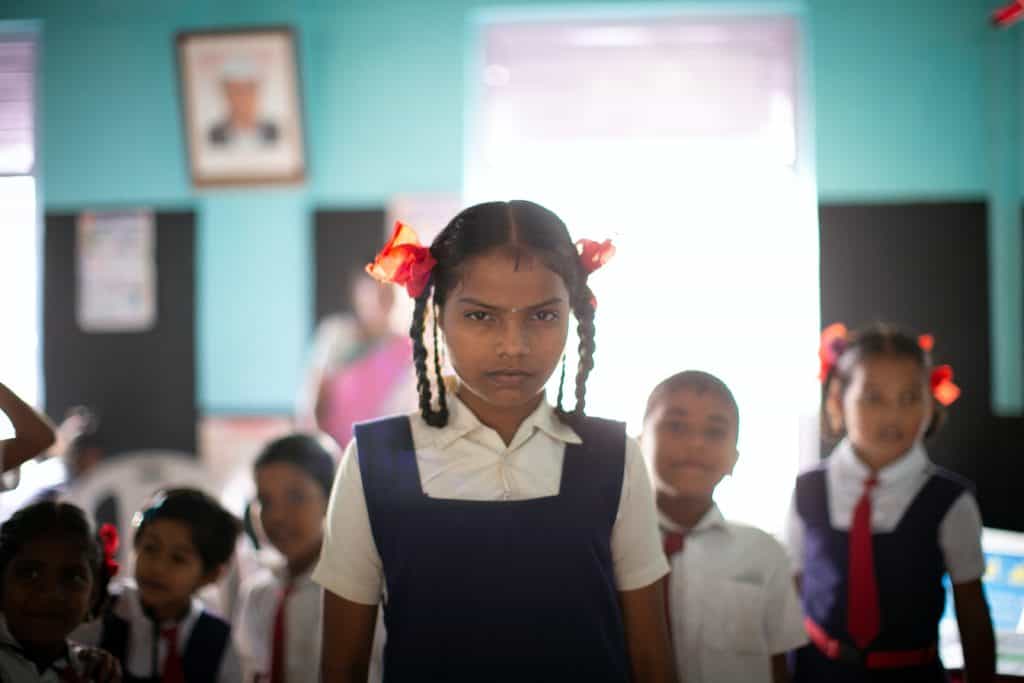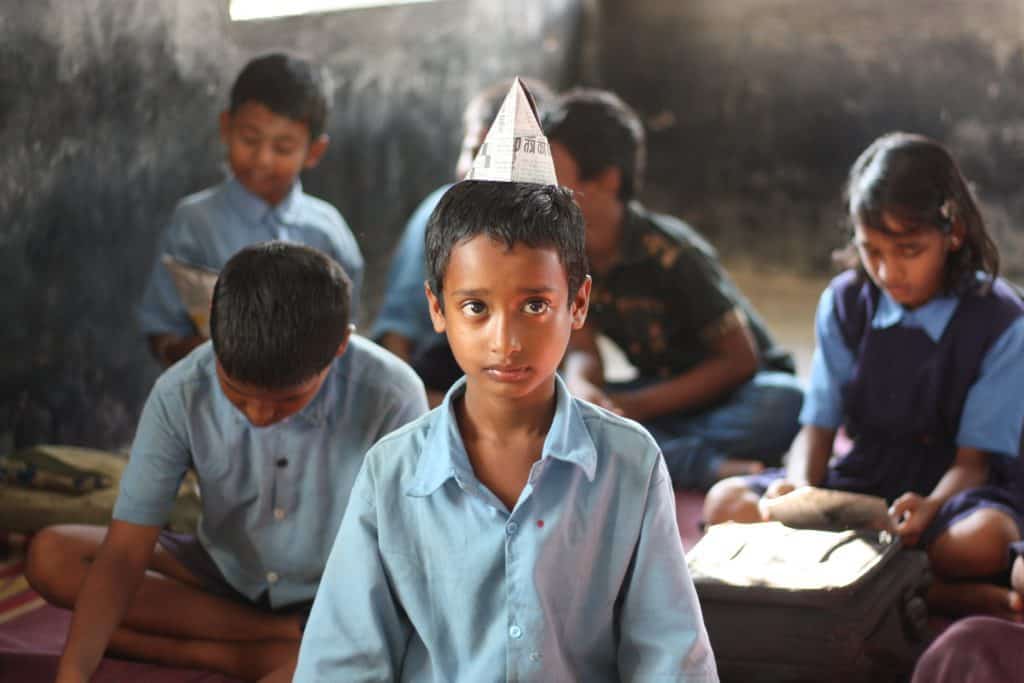In 2019, Praja Foundation, a city-based non-profit working towards better urban governance, raised an alarm. They collected data through the Right to Information (RTI) Act and showed that enrolment numbers in Brihanmumbai Municipal Corporation (BMC) schools had dropped 10% from 3,43,621 in 2016-17 to 3,11,663 in 2017-18. The number used to be 4,04,251 in 2013-14. If this trend continued, the non-profit warned, BMC would “have no students by 2028”. Praja also commissioned an organisation called Hansa Research to conduct a household survey, which found that 56% from the non-affluent sections of the population would prefer sending their children to a private English school.
The falling enrolment numbers and the poor perception of BMC-run schools has obviously been on the civic body, and its ruling party’s, Shiv Sena-BJP, mind. Like most other public schools in the country, BMC schools are not known for their quality of education. But for the past few years, the civic body seems intent on changing this perception.
In January 2020, BMC announced that two of its 4,000+ schools across the city: Woolen Mills, Dadar and Poonam Nagar, Andheri, would run on ICSE and CBSE curriculum.
“I am delighted to announce that ICSE & CBSE boards will now also be taught at these @mybmc schools stated below! This is a huge win for the city’s education system run by the BMC. Quality education, a silent revolution that’s underway in BMC schools”, Aaditya Thackeray, Worli MLA, tweeted.
Three months after announcing the shift to ICSE and CBSE accreditation, BMC admitted students by drawing names from a lot. “The response has been phenomenal,” Pankaj Yadav, corporator from K/East and member of BMC’s education committee, says. “Many parents believe that state-board schools do not offer the best preparation for competitive exams. We started ICSE and CBSE schools to give a fair chance to deprived students.” In reality, the response has been phenomenal only for the CBSE Poonam Nagar school where the BMC received 1,510 applications whereas for the Dadar ICSE, BMC only received 332.
Re-branding schools
That hasn’t stopped the civic body from employing a branding exercise for educational reforms. On February 3 when BMC announced the education budget, it also announced a rebranding of its schools as Mumbai Public Schools. Sandhya Doshi, Education Committee chairperson, admitted that this was done to create a positive attitude in people’s mind about BMC-run schools.
Read More: The problem of Mumbai’s ‘unrecognised’ schools. What are the solutions?
The ICSE and CBSE schools are barely a few months old and entangled in restrictions imposed due to COVID-19. It might, therefore, be too soon to assess them on their quality of education but the initial response to the schools has been positive. Teacher Satwinder Kaur who teaches science to Standards 3 and 4 and social science to 5 and 6 of Woolen Mills School calls the school an “upgradation”. Both because of BMC’s training to teachers for the new curriculum and the reformed manner of teaching. “There’s no mugging up,” she says, “ It’s an entirely activity-based curriculum”, vastly different from her experience of teaching in other BMC schools in Colaba and Kurla.

Researchers have long correlated that a high level of parental involvement can lead to improved academic performance in students. Satwinder feels that the parents sending their children to Woolen Mills School are active and involved, unlike other BMC schools where “their socio-economic backgrounds” forbid them, since they have to concentrate on earning a living.
BMC clearly heartened by the response to the non-state board schools has proposed to launch 10 new CBSE schools. But experts warn that good schools need more than just a new curriculum.
Read More: Studies must go on. Internet or no internet.
Reform teaching and learning
“Irrespective of the board,” Meenu Thomas of Save The Children India, a non-profit, says, “working on student outcome-based education is essential”.
Repeated educational reports point at dismal student comprehension and retention. Examples of how a student from Standard 5 cannot do arithmetic problems from Standard 2 or lower are galore. So even before learning outcomes, the focus, Meenu says, should be foundational literacy and numeracy. Then the move can be to subject-wise outcomes.
In the higher grades of Standard 1 to 6, Woolen Mills school has admitted students from other schools. These students, Satwinder says, need additional help. Teachers, then, focus on remedial learning. Bridging this learning gap, induced by absenteeism or comprehension, has always been essential but it has become a necessity in the post-COVID world. “Students have not just lost a year of education but they have also lost their environment of learning where they can interact with people freely and learn more organically,” Meenu says.
As the pandemic has forced people indoors, the civic body has doubled its focus on digital education. But BMC’s own education committee finds that 60,000 students still cannot access online studies. Multiple non-profits and philanthropists work in Mumbai’s education sector but many students still lack access to smartphones, laptops and a steady internet data pack. “Exploring alternate means of education like community classrooms and involving parents in education is essential,” Meenu says.

Improving School Management
School Management Committees (SMCs), mandated by the Right to Education Act (RTE), that involve parents in the school’s functioning can play a role in directing education funds where they are most needed – such as increasing access to smartphones or laptops. SMCs are responsible for monitoring the school’s working, the utilisation of grants, and preparing and recommending a School Development Plan (SDP).
An SDP, according to the RTE, shall be the basis for the plans and grants to be made by the appropriate government/ local authority to the school. But when Praja looked at a random sample of SDPs across Mumbai, they found that “the initial requirements of existing status of school have been filled, however the agenda and plan for requirements proposed for the next year has been left blank. A primordial requirement for enabling school level governance, Praja found, was not being implemented. “This probably reflects a lack of knowledge or awareness about the use of the SDP and lack of training for SMC members.”
“No one can deny that there’s a lot of scope for improvement,” Corporator Pankaj Yadav agrees but he also says that a lot of new plans are afoot, especially work towards implementing the National Education Policy. “We will see change in the future”.
Like NEP today, many RTE rules such as those on infrastructure upgradation were considered a game-changer in education. But good infrastructure has not particularly translated into better outcomes for BMC schools. So while non-state board schools are a good addition to the mixed-bag of BMC’s education policy, bridging learning gaps and achieving learning outcomes must remain the central focus.
Also Read: